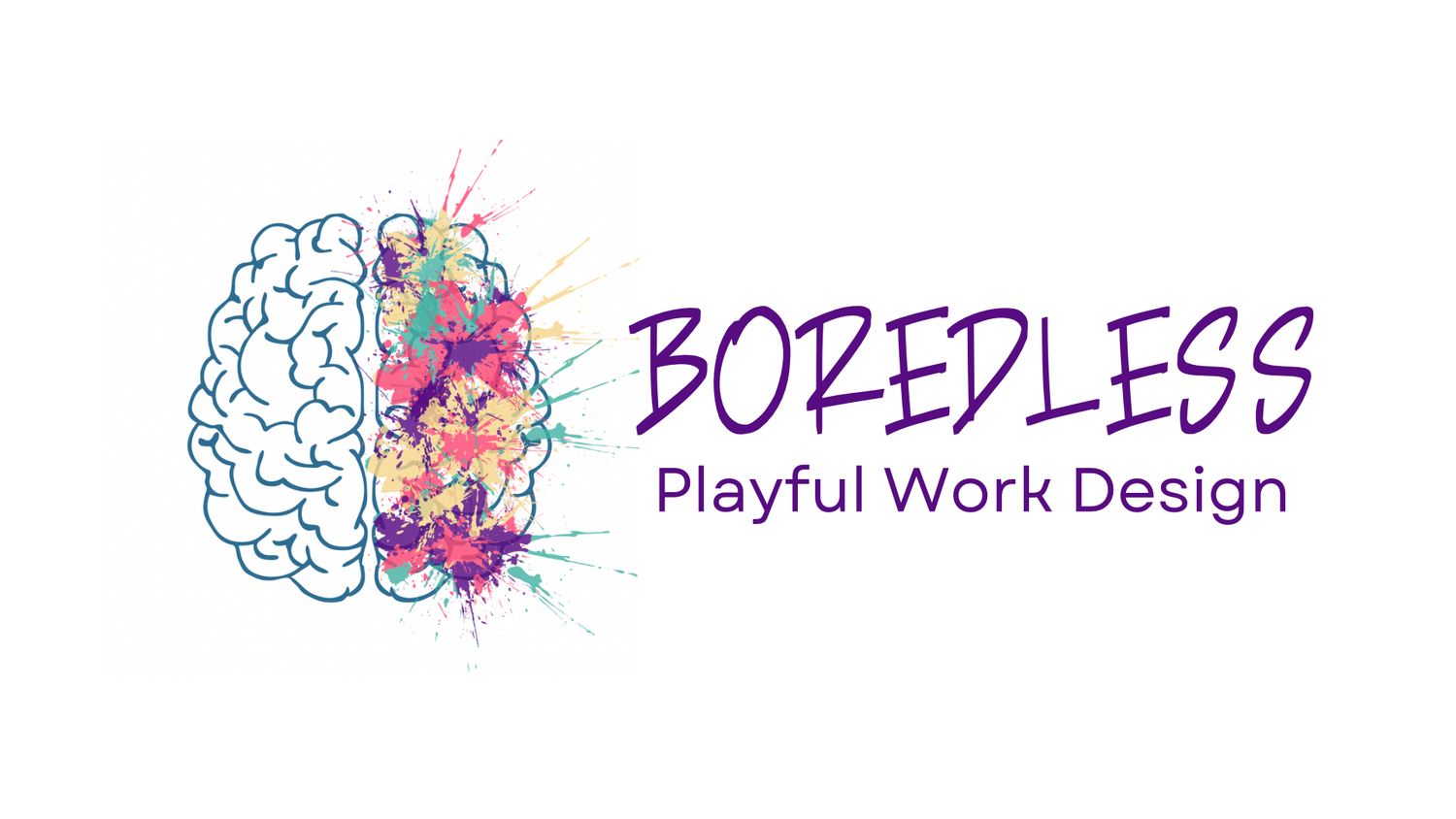Playfulness over Fun
In many of my presentations and even just conversations with others about my work and “play”, there’s usually a discussion of “well, what IS play?”. The definition of play is similar to that of “happiness” and “fun”. All are subjective and wholly personal. What I think is play could be VERY different from what someone else considers play (the same goes for fun and happiness). Scientists and researchers in this field have not been able to agree upon one definitive statement about what play is. In my work, I quickly realized helping others understand the benefits of play requires some type of definition, so I developed a set of ten characteristics that I believe are necessary for an activity to be considered “play” (compiled from the work of at least 8 researchers and their teams).
This has proved to be beneficial when helping others determine their own personal way to play and how to access the benefits of play as an individual. However, when it comes to experiencing the benefits of play at WORK, it may be better to consider playFULNESS. Rene Proyer and a team of other scientists have used studies from the arena of personality to describe four play identities. When individuals and teams discover their own personal play identities, they can then apply the new understanding of playfulness to all aspects of their day - scheduling a meeting, communicating via email, or just having a conversation in the hallway.
In a professional environment, you must be conscious of how you express your playfulness, especially in leadership roles. A leader must consider their own sense of humor as compared to what their teams perceive as funny. There are some recommendations in business development and leadership books that recommend jokes and pranks. A joke at anyone else’s expense has no place in the workplace. Even self-deprecating humor should be used sparingly. Others disagree, citing research that found managers using self-depreciation are perceived as more likable but leaders should also be modeling what behavior is acceptable throughout the setting. Trust, psychological safety, and collaboration are reasons for incorporating playfulness, not making ourselves likable. Pranks also run the risk of being appreciated by just one person or group and potentially harmful or offensive to another. Playfulness is not just “being funny”. Playfulness is, as defined by Rene Proyer et al, “an individual differences variable that allows people to (re-)frame everyday situations in a way to make them entertaining, stimulating, and/or interesting”. (Proyer et al, 2020) The purpose of playfulness at work should be to make meetings, communication, and interactions “entertaining, stimulating, and/or interesting” and not just “funny” or “not serious”. You can, in fact, be very serious, working on a difficult problem, and remain stimulating, entertaining, and interesting! As playfulness is incorporated on a regular basis, and as interpersonal relationships develop trust and safety, then we can introduce more humor and maybe a prank from time to time.
Overall the use of play and playfulness in the workplace can lead to 59% less turnover, 41% less absenteeism, and a 21% increase in profitability (Gallup, 2017) when incorporated well. Ready for organizational transformation by discovering the playful identities of your leaders and teams? Reach out here to discuss a Personal Play Identity workshop or a culture audit with consulting and facilitation. Let’s Play!
Gallup, Inc. “Employee Engagement Vs. Employee Satisfaction and Organizational Culture.” Gallup.com, 12 Apr. 2017, www.gallup.com/workplace/236366/right-culture-not-employee-satisfaction.aspx.
Proyer, René T., et al. “Assessing Other-Directed, Lighthearted, Intellectual, and Whimsical Playfulness in Adults.” European Journal of Psychological Assessment, vol. 36, no. 4, Hogrefe Publishing Group, July 2020, pp. 624–34. Crossref, https://doi.org/10.1027/1015-5759/a000531.







